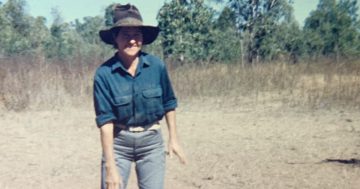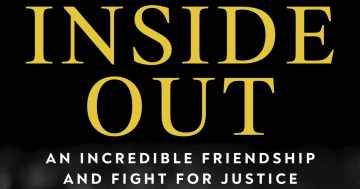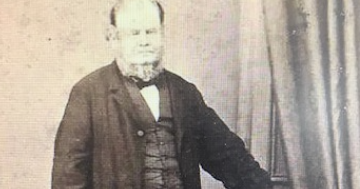Laura Stack* relates how her convictions helped her come to terms with a personal tragedy and urges others to search for values that are significant, constant and life-affirming.
 When Johnny was assigned a presentation on his five most important values in one of his university classes three months before he died, ‘Conviction’ was third on his list (following Altruism and Patience).
When Johnny was assigned a presentation on his five most important values in one of his university classes three months before he died, ‘Conviction’ was third on his list (following Altruism and Patience).
As he defined it: “Conviction means showing confidence in what you believe in, knowing it is the truth, and standing by it.”
Most of us understand the concept of conviction, though not all of us practice it — or if we do, it’s only when something goes wrong, not a daily thing.
When you reach for a conviction, you want it to be there, or your hands may slip off, and your ability to cope in difficult situations can fail.
A conviction is no less than an anchor that holds you in place in the stormy seas of life.
My Christian faith helps me through my worse storms, including Johnny’s death.
It doesn’t mean I don’t grieve or feel pain, but we believe that Johnny is in the Lord’s presence and healed of his afflictions, and we will see him again.
What is that anchor for you?
If you’re an outdoors person, perhaps sports are important to your self-care.
Perhaps you’re convicted to provide for your family, and it brings you a sense of self-worth.
The good news is, it’s never too late to find or develop convictions that let you hammer in stakes capable of holding you in place.
So, give it some thought: What do you really believe in? What steadies you and validates you? What makes you happiest and most peaceful when you think of it?
Your favourite sports team winning or ice-cream don’t count.
For your conviction to really work, it is something significant, constant, and life-affirming.
This could be belief in your self-worth, personal abilities, your family, your country, humanity in general, or your faith.
When you have a conviction to cling to, it’s far easier to settle yourself down when you’re uneasy, uncertain, or in pain.
A solid conviction eases your mind, whether it’s a central conviction that guides your whole life, or a peripheral one that pertains to a specific subject or constellation of beliefs.
In addition to my faith, I’m convicted about my abilities to help people become more productive in work and life and to help them spend more time with their loved ones.
In fact, I’ve made this my career — and I’m convicted about my purpose and calling to save the lives of our youth.
That’s what Johnny’s Ambassadors has become for me.
I am absolutely convicted, more than anything else in my life, to educate parents and teens about the dangers of today’s high-THC marijuana on the developing adolescent mind.
I will not stop until we close the gap between the actual and perceived harmfulness of marijuana in our young teens.
I was touched to find that Johnny chose me as his role model for his third value.
He said: “Though it may appear to be cliché and overdone, the biggest role model in my own life is my mother, Laura Stack…she always believes in what she’s doing.”
He never said this to me while he was alive, but better praise I could not ask for; just knowing he felt that way comforts me.
That’s also one of the most important functions of any conviction.
What is your conviction?
*Laura Stack is an award-winning keynote speaker, bestselling author, and authority on productivity and performance. She can be contacted at theproductivitypro.com.
This article first appeared on Laura’s blogsite.











